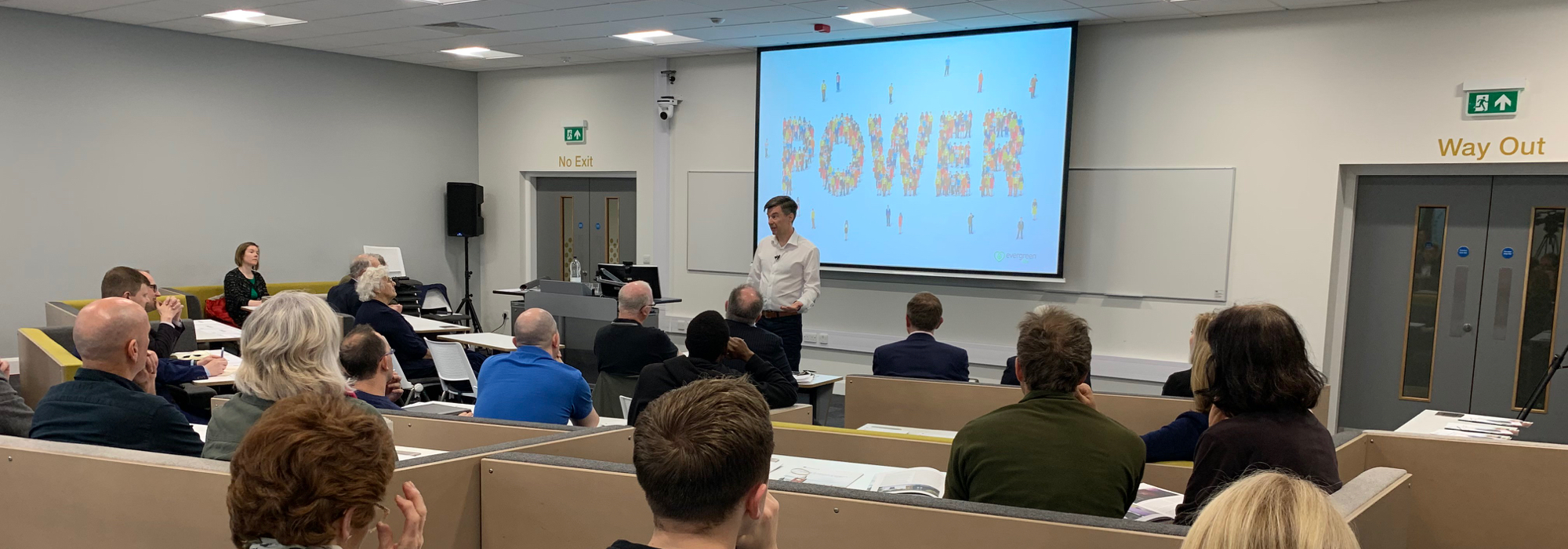Founder of Evergreen, a social impact company, Stephen Critchlow, urged health leaders in Liverpool this week to change the landscape of healthcare by empowering people to curate and own their own health record and ultimately improve their own wellness.
Whilst there is currently a national drive to give people access to digital services such as appointment booking and online prescriptions, Critchlow urges that we need to ‘turn healthcare on its head’ by not only enabling people to use services digitally but to change the way health information and health improvement is provided as a society – and to give people ownership of their health records meaning they can own their health and wellbeing.
Watch the video here:
Predicting health outcomes with data will help improve wellness for people
Critchlow spoke at the University ofLiverpool to highlight how health data, owned and shared by people, can be used to predict and shape the nation’s health, and help people improve their ‘wellness years’. He demonstrated how this could save the NHS by reducing demand. He believes that the way the healthcare system and government approach health record curation and sharing is flawed and not focused with people and patients in mind first.
“Throughout my career, as a hospital pharmacist and hospital manager, I have seen huge improvements in health when systems have been designed with the person in mind first. I feel if we continue to put organisational needs first, we will continue to see our nation’s health affected by inefficient services and inaccurate and incomplete health information.”
This time it’s personal
Evergreen Life is putting people in control of their own health information with their personal health record app, used by over 640,000 people across the nation. People are using the app to keep health information in one record, that is in the palm of their hand so it’s available whenever and wherever they need it. The app can also be used to access GP records and use services such as booking appointments and order repeat prescriptions through their app, making interacting with their GP easier and more convenient for people.
Critchlow comments “enabling people to access healthcare services such as GP surgeries is key to complete information– by having the patient in mind first, we will make sure we serve the needs of people and their health when it comes to providing services and information.This has been fundamental to developing the personal health record itself –when we developed the personal health record, we worked with real life examples to ensure we prioritised the health information that people needed.”
Put wellness, not sickness, first
The future of health and wellbeing also has to put the person first, Critchlow comments “we’re now moving to a ‘wellbeing first’ approach where we will help users of the app be more informed about how well they are, to encourage and educate them on how to improve their health and wellbeing. What’s more, is that it’s personalised – so there’s no ‘one size fits all’ when it comes to improving your diet, for instance. In the app, we’re already asking our users about aspects of their lives such as food, fitness and happiness, which will ultimately provide them personalised advice and guidance that is tailored to what people want, rather than what the latest government or national drive is.”
Evergreen Life goes beyond helping individuals manage their own health information, it will also help to inform on a national health level – users can opt in to a data donor programme, where an anonymised version of data is analysed to inform future health and wellness trends, and even include genetic information which could help inform research and improve outcomes on a national level.
Critchlow says “When the power of people and data are combined with data owned and curated by people, we can create better health and wellness for everyone. This can save our NHS and deliver better health globally.”

